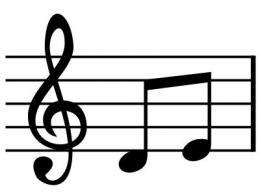May 19, 2014 weblog
Taking notes? TransProse algorithm turns novels into music

A project called TransProse translates literature into music. TransProse is described as "the first iteration" of a program that finds different emotions throughout different novels and programmatically creates music based on those values. The project is the creation of Hannah Davis, a programmer, artist, and musician based in New York City, whose areas of interest include data visualization, and Saif Mohammad research officer at the National Research Council Canada. His research interests are natural language processing, especially lexical semantics. He develops computational models for emotion detection, word-color associations, semantic distance, and lexical-semantic relations such as word-pair antonymy. Their interests help explain their interest in exploring how novels can be translated into music.
The nature of the project poses two questions: Can the emotional feel of a novel be translated into music? Can that music be listen-able? In a presentation on her work, Davis told her audience how efforts were made to improve on complexity, order and emotional accuracy.
TransProse determines densities of eight different emotions and two different states, positive or negative, throughout the novel. The emotions are joy, sadness, anger, disgust, anticipation, surprise, trust, and fear. The musical piece chronologically follows the novel, which is broken up into beginning, early middle, late middle, and end parts, with four measures representing each of the sections. Tempo, key, notes, octaves, and other elements are determined depending on various rules and parameters.
The pair last month presented their paper, "Generating Music From Literature," at the European Chapter of the Association for Computational Linguistics (EACL) event in Gothenburg, Sweden. In the paper, they said that their system can generate music according to the use of "emotion" words in a novel. They said the program goes through three steps: analyzing text and generating an emotion profile, a collection of statistics about the presence of emotion words in the text; second, based on the emotional profile, generating values for tempo, scale, octave, notes and sequence of notes; next, enter JFugue, the open source Java API for programming music. "Finally, these values are provided to JFugue, an open-source Java API for programming music, that generates the appropriate audio file." (JFugue allows the user to easily experiment with different notes, instruments, octaves,)
TransProse in seeking to capture the novel's tone assigns an either major or minor key to the piece. Peter Pan and Anne of Green Gables created pieces in the major key. Heart of Darkness, A Clockwork Orange and The Road created pieces in the minor key.
Whether the piece is major or minor, they wrote in their paper, is determined by the ratio of the number of positive words to the number of negative words in the novel. If the ratio is higher than 1, C major is used, where only pitches pertaining to C major are played. If the ratio is 1 or lower, C minor is used.
Their interest in this project continues. "The current version of TransProse is just the beginning of our investigation," according to their website, "and we don't claim to be making beautiful music yet."
They described avenues for future work such as exploring the use of mid-piece key changes and intentional harmony and discord between the melodies. They also want to further explore ways to capture activity in music, an automatically generated activity lexicon for identifying text portions where characters fight, dance or conspire, for example, or where they are relatively passive (calm, incapacitated, sad, etc.).
More information: Paper: Generating Music from Literature, arXiv:1403.2124 [cs.CL] arxiv.org/abs/1403.2124
Abstract
We present a system, TransProse, that automatically generates musical pieces from text. TransProse uses known relations between elements of music such as tempo and scale, and the emotions they evoke. Further, it uses a novel mechanism to determine sequences of notes that capture the emotional activity in the text. The work has applications in information visualization, in creating audio-visual e-books, and in developing music apps.
TransProse: www.musicfromtext.com/
© 2014 Tech Xplore
















